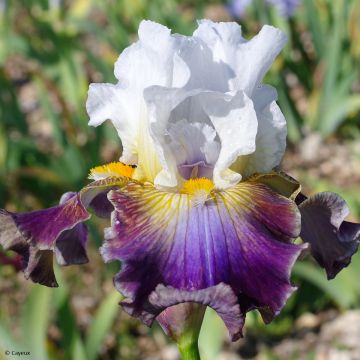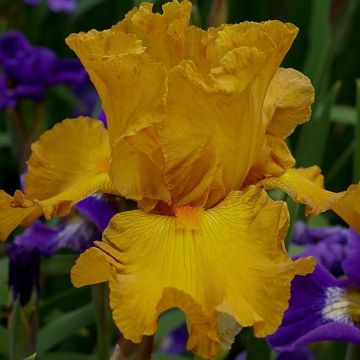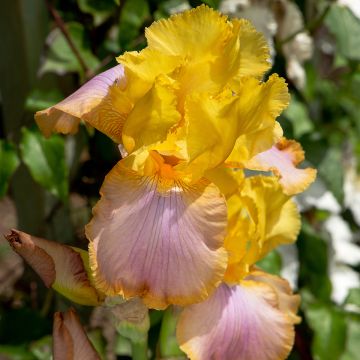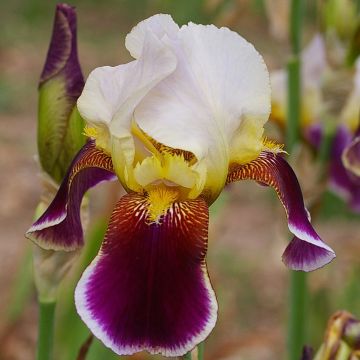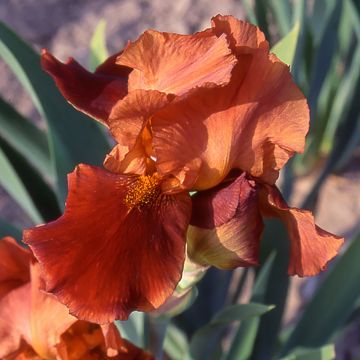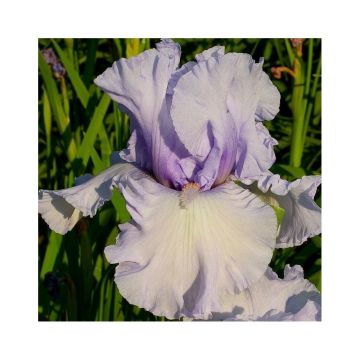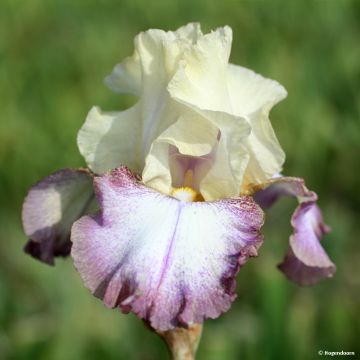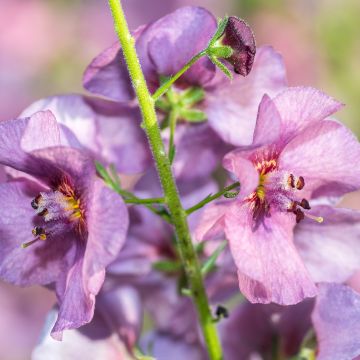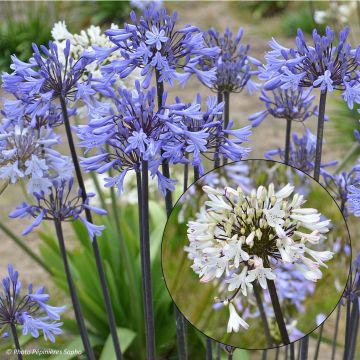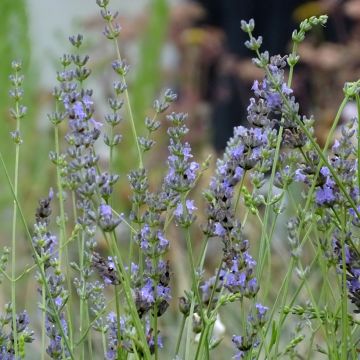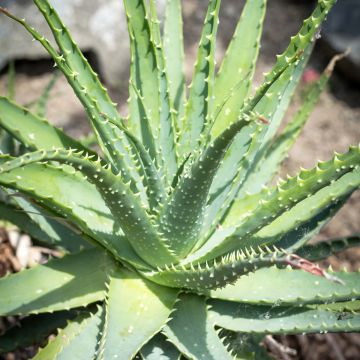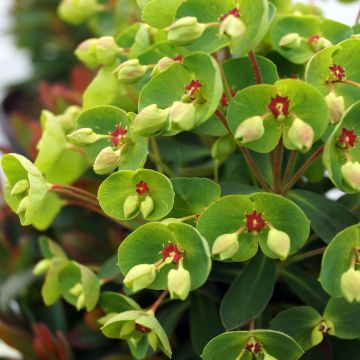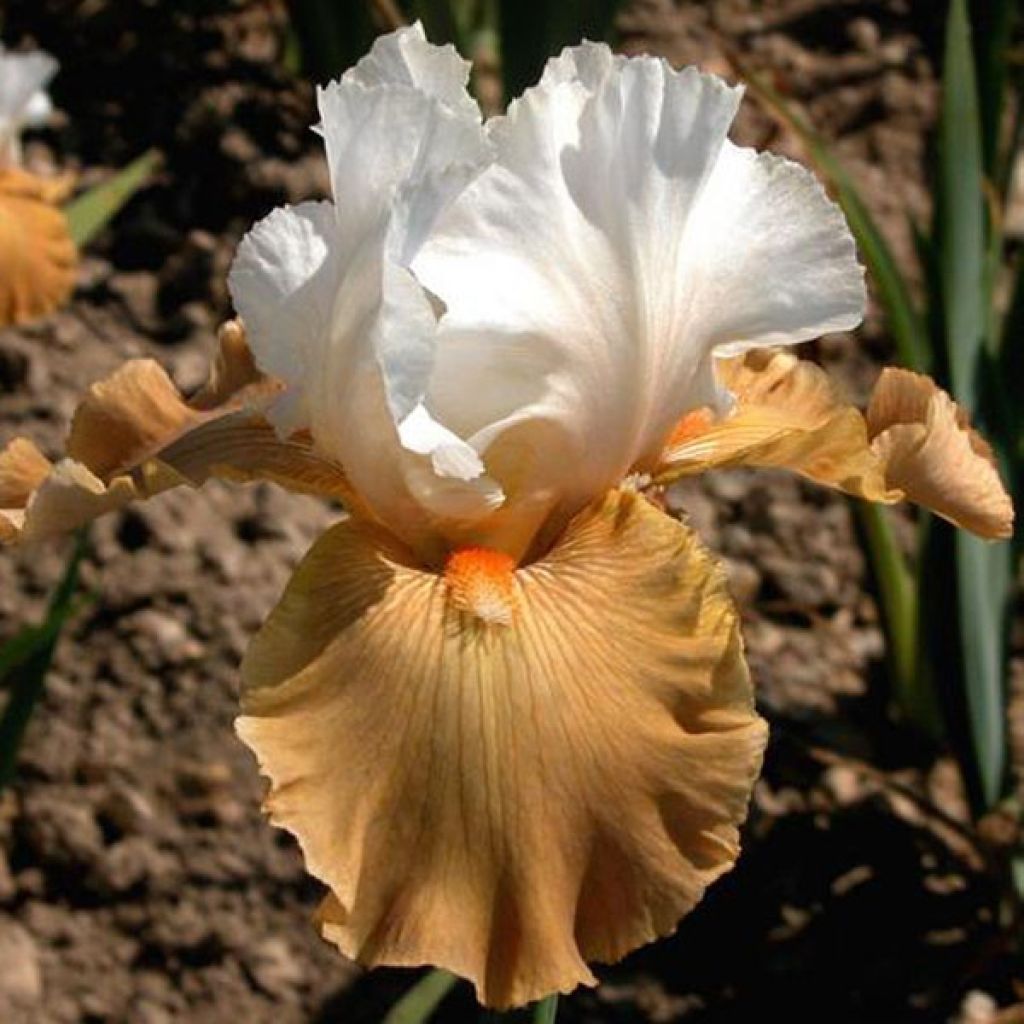

Iris germanica Chateau dAuvers-sur-Oise - Bearded Iris
Iris germanica Chateau dAuvers-sur-Oise - Bearded Iris
Iris germanica Chateau d Auvers Sur Oise
German Iris, Bearded Iris
Thanks to the individuals (for order preparation and shipping), the bulb received is healthy. Planted near a Papyrus, I am now patiently waiting for it to take root... (or not?)
Thierry, 24/04/2023
This item cannot be shipped to the selected country
Delivery charge from €5.90
Delivery charge from €5.90
More information
Schedule delivery date,
and select date in basket
This plant carries a 12 months recovery warranty
More information
We guarantee the quality of our plants for a full growing cycle, and will replace at our expense any plant that fails to recover under normal climatic and planting conditions.
From €5.90 for pickup delivery and €6.90 for home delivery
Express home delivery from €8.90.
From €5.90 for pickup delivery and €6.90 for home delivery
Express home delivery from €8.90.
Does this plant fit my garden?
Set up your Plantfit profile →
Description
The Garden Iris 'Château d'Auvers-sur-Oise' is an elegant bicoloured variety, with white petals infused with very light apricot at blooming, surmounting almost horizontal sepals of coppery apricot colour, animated by pretty mandarin beards. The floral stems of this tall iris are sturdy and well-balanced, and its flowering takes place rather early in the bearded iris season. Its nuanced shades of white and apricot will complement all white, blue or mauve flowers in spring.
'Château d'Auvers-sur-Oise' is a rhizomatous and deciduous perennial plant, with an upright tufted habit. Its foliage disappears in winter. It belongs to the family of Iridaceae. It is one of the many cultivars obtained over centuries, whose controversial origin is discussed around the number of chromosomes of potential ancestors. It is worth noting that Garden Iris have European origins.
'Château d'Auvers-sur-Oise' is a variety that will reach 90cm (35in) in height when in bloom, with a sturdy stem supported by a rhizome, bearing 6 to 8 well-distributed flower buds along its height. The clump will spread very quickly, with no theoretical limit over time, as the central rhizomes become bare in favour of the outer rhizomes. The foliage consists of long sword-shaped leaves, with a glaucous green colour and strong veining. In April, floral stems appear and will give flowers in May that open from the top to the lower branches. The very soft colour of this plant is, as always with Garden Iris, enhanced by the silky texture of the petals and sepals.
Obtained by Cayeux in 2004.
To accompany irises, choose plants to associate based on their needs (exposure, soil...), their non-suffocating vegetation for their rhizomes (low plants or light foliage) and their complementarity (appearance, flowering time). For example, Gaura will cast little shade on irises and will keep the deflowered bed attractive all summer. Eschscholzia will be satisfied with a dry and poor soil, just like irises. Geraniums, salvias, and Libertia also go very well with irises. Slopes and terraced edges will be stabilized by a dense planting of vigorous old varieties that can remain in place and require little care. If the goal is more decorative and easy access for care, you can choose more modern varieties, such as intermediates, often very floriferous, which are less likely to bend under the wind or rain.
Report an error about the product description
Iris germanica Chateau dAuvers-sur-Oise - Bearded Iris in pictures
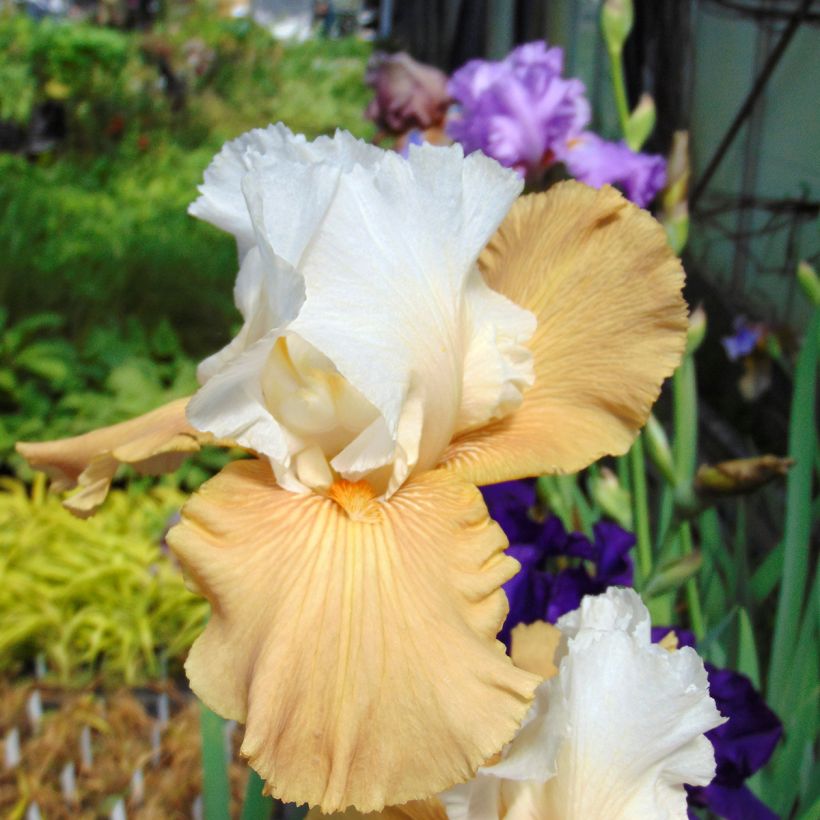

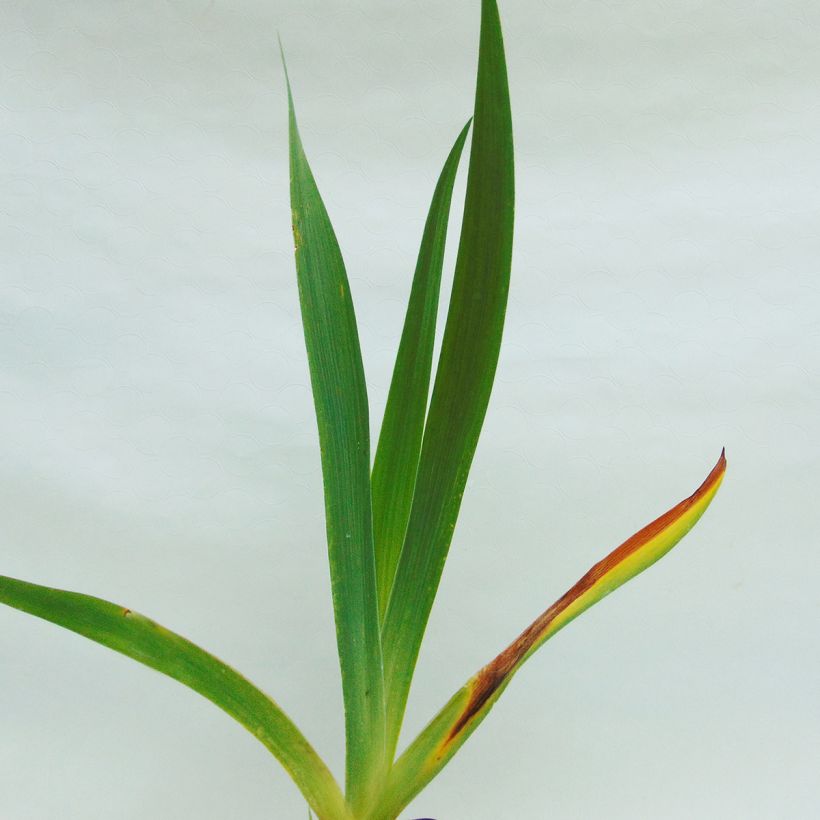

Flowering
Foliage
Plant habit
Botanical data
Iris
germanica
Chateau d Auvers Sur Oise
Iridaceae
German Iris, Bearded Iris
Cultivar or hybrid
Other German Iris - Bearded Iris
Planting and care
The 'Château d'Auvers-sur-Oise' iris should be planted shallowly, with the rhizome exposed at ground level. Add sand if the soil is too heavy or wet, and place the rhizomes on small mounds. Ensure good drainage to prevent the iris from rotting. In summer, this iris should be watered 1 to 2 times per month. At the end of flowering, they should be pruned by cutting the flower stems 10cm (4in) from the ground. Damaged leaves should only be removed in autumn. It is not recommended to provide too much nitrogen as it weakens the plant and increases the number of leaves at the expense of flowers. The taller flower stalks become brittle. The iris can be susceptible to heterosporiosis, a disease characterized by oval brown spots. To prevent it, treat the iris with Bordeaux mixture at the beginning of vegetation. Every 4 years in summer after flowering, divide the clumps by pulling up the entire plant. Transplantation should be done in a location without iris for one year. Take the most beautiful plants from the rhizome, usually those on the outer edge.
The German iris appreciates calcareous soils. In acid to very acid soil, it is preferable to add a lime-based amendment.
Planting period
Intended location
Care
-
, onOrder confirmed
Reply from on Promesse de fleurs
Mediterranean perennials
Haven't found what you were looking for?
Hardiness is the lowest winter temperature a plant can endure without suffering serious damage or even dying. However, hardiness is affected by location (a sheltered area, such as a patio), protection (winter cover) and soil type (hardiness is improved by well-drained soil).

Photo Sharing Terms & Conditions
In order to encourage gardeners to interact and share their experiences, Promesse de fleurs offers various media enabling content to be uploaded onto its Site - in particular via the ‘Photo sharing’ module.
The User agrees to refrain from:
- Posting any content that is illegal, prejudicial, insulting, racist, inciteful to hatred, revisionist, contrary to public decency, that infringes on privacy or on the privacy rights of third parties, in particular the publicity rights of persons and goods, intellectual property rights, or the right to privacy.
- Submitting content on behalf of a third party;
- Impersonate the identity of a third party and/or publish any personal information about a third party;
In general, the User undertakes to refrain from any unethical behaviour.
All Content (in particular text, comments, files, images, photos, videos, creative works, etc.), which may be subject to property or intellectual property rights, image or other private rights, shall remain the property of the User, subject to the limited rights granted by the terms of the licence granted by Promesse de fleurs as stated below. Users are at liberty to publish or not to publish such Content on the Site, notably via the ‘Photo Sharing’ facility, and accept that this Content shall be made public and freely accessible, notably on the Internet.
Users further acknowledge, undertake to have ,and guarantee that they hold all necessary rights and permissions to publish such material on the Site, in particular with regard to the legislation in force pertaining to any privacy, property, intellectual property, image, or contractual rights, or rights of any other nature. By publishing such Content on the Site, Users acknowledge accepting full liability as publishers of the Content within the meaning of the law, and grant Promesse de fleurs, free of charge, an inclusive, worldwide licence for the said Content for the entire duration of its publication, including all reproduction, representation, up/downloading, displaying, performing, transmission, and storage rights.
Users also grant permission for their name to be linked to the Content and accept that this link may not always be made available.
By engaging in posting material, Users consent to their Content becoming automatically accessible on the Internet, in particular on other sites and/or blogs and/or web pages of the Promesse de fleurs site, including in particular social pages and the Promesse de fleurs catalogue.
Users may secure the removal of entrusted content free of charge by issuing a simple request via our contact form.
The flowering period indicated on our website applies to countries and regions located in USDA zone 8 (France, the United Kingdom, Ireland, the Netherlands, etc.)
It will vary according to where you live:
- In zones 9 to 10 (Italy, Spain, Greece, etc.), flowering will occur about 2 to 4 weeks earlier.
- In zones 6 to 7 (Germany, Poland, Slovenia, and lower mountainous regions), flowering will be delayed by 2 to 3 weeks.
- In zone 5 (Central Europe, Scandinavia), blooming will be delayed by 3 to 5 weeks.
In temperate climates, pruning of spring-flowering shrubs (forsythia, spireas, etc.) should be done just after flowering.
Pruning of summer-flowering shrubs (Indian Lilac, Perovskia, etc.) can be done in winter or spring.
In cold regions as well as with frost-sensitive plants, avoid pruning too early when severe frosts may still occur.
The planting period indicated on our website applies to countries and regions located in USDA zone 8 (France, United Kingdom, Ireland, Netherlands).
It will vary according to where you live:
- In Mediterranean zones (Marseille, Madrid, Milan, etc.), autumn and winter are the best planting periods.
- In continental zones (Strasbourg, Munich, Vienna, etc.), delay planting by 2 to 3 weeks in spring and bring it forward by 2 to 4 weeks in autumn.
- In mountainous regions (the Alps, Pyrenees, Carpathians, etc.), it is best to plant in late spring (May-June) or late summer (August-September).
The harvesting period indicated on our website applies to countries and regions in USDA zone 8 (France, England, Ireland, the Netherlands).
In colder areas (Scandinavia, Poland, Austria...) fruit and vegetable harvests are likely to be delayed by 3-4 weeks.
In warmer areas (Italy, Spain, Greece, etc.), harvesting will probably take place earlier, depending on weather conditions.
The sowing periods indicated on our website apply to countries and regions within USDA Zone 8 (France, UK, Ireland, Netherlands).
In colder areas (Scandinavia, Poland, Austria...), delay any outdoor sowing by 3-4 weeks, or sow under glass.
In warmer climes (Italy, Spain, Greece, etc.), bring outdoor sowing forward by a few weeks.

































